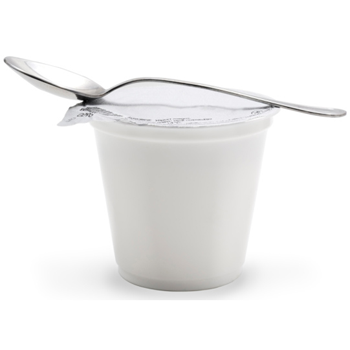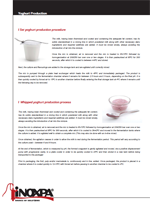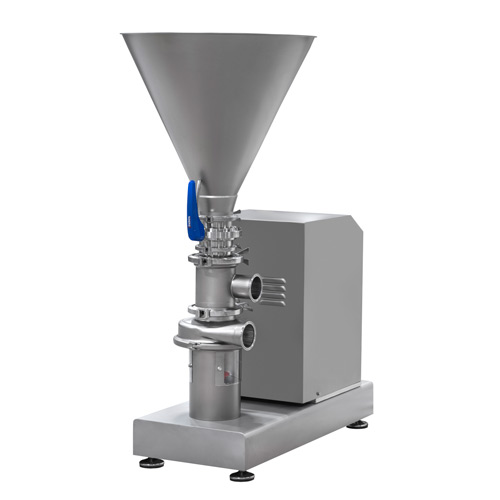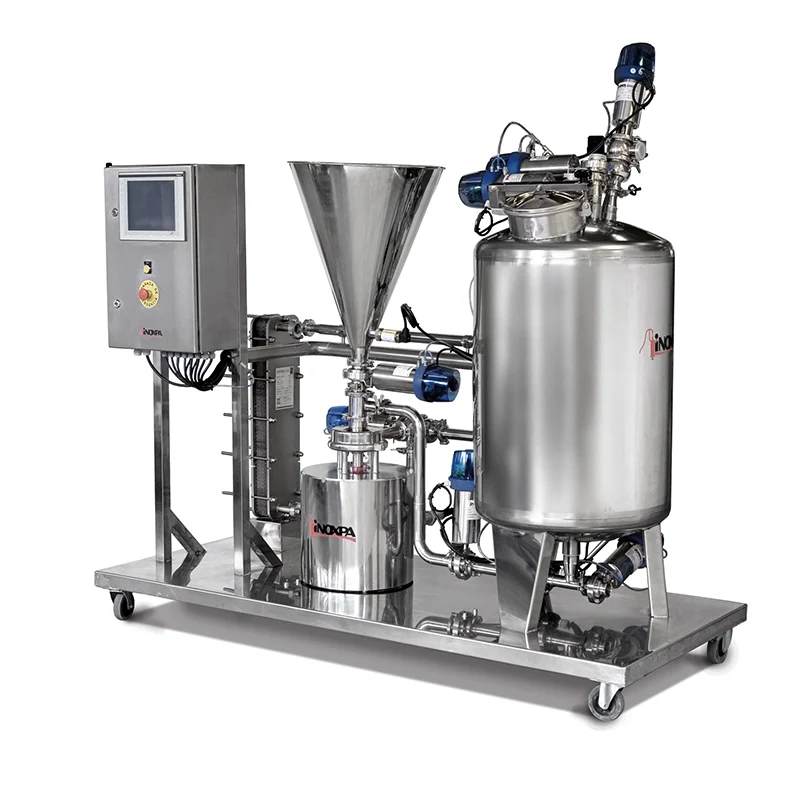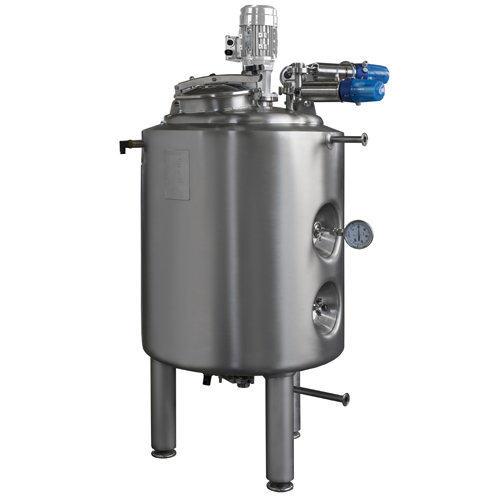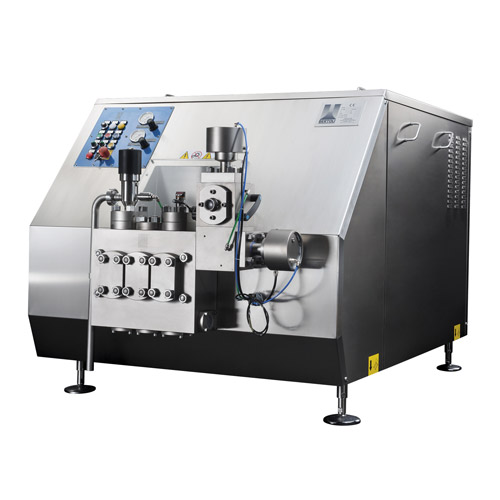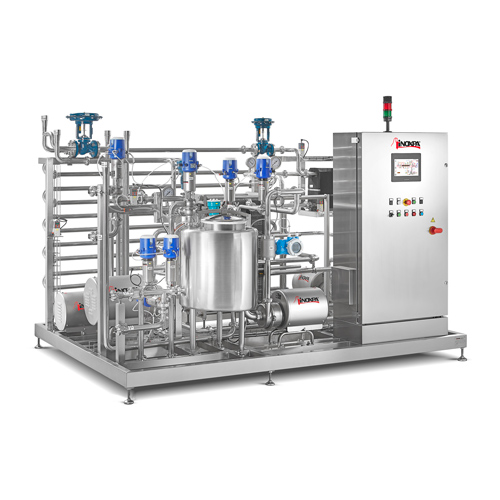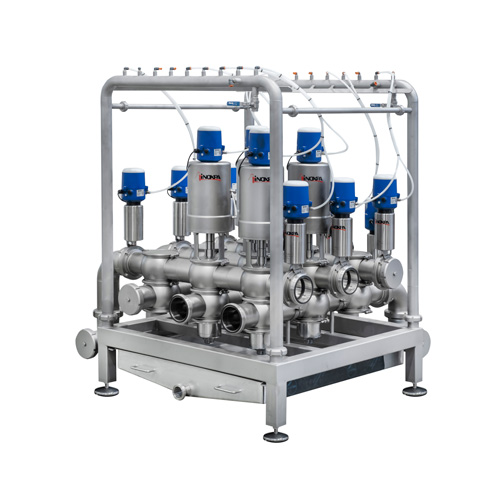Industrial production of yoghurt
Set yoghurt production procedure
The milk, having been thermised and cooled and containing the adequate fat content, has its solids standardised in a mixing line in which powdered milk along with other necessary dairy ingredients and required additives are added. It must be mixed slowly, always avoiding the introduction of air into the mixture.
Once the mix is obtained, air is removed and the mix is heated to 65-70ºC followed by homogenisation at 200/250 bar over one or two stages. It is then pasteurised at 95ºC for 300 seconds, after which it is cooled to between 4-6ºC and stored.
Next, the culture and flavourings are added to the storage tank and are agitated until correctly mixed.
The mix is pumped through a plate heat exchanger which heats the milk to 45ºC and immediately packaged. The product is subsequently sent to the fermentation chamber where it remains for between 2.5 hours and 3 hours, depending on the final pH. It is then quickly cooled by forced air to 15ºC in another chamber before finally entering the final storage tank at 4ºC where it remains until the following day to be removed.
Whipped yoghurt production process
The milk, having been thermised and cooled and containing the adequate fat content, has its solids standardised in a mixing line in which powdered milk along with other necessary dairy ingredients and required additives are added. It must be mixed slowly, always avoiding the introduction of air into the mixture.
Once the mix is obtained, air is removed and the mix is heated to 65-70ºC followed by homogenisation at 200/250 bar over one or two stages. It is then pasteurised at 95ºC for 300 seconds, after which it is cooled to 38-42ºC and moved to the fermentation tanks where the culture is added. It is agitated well to obtain a complete mix (This may also be done with an in-line mixer)
Once obtained, the agitation ceases in order to allow the milk to rest during the fermentation period. This period will vary according to the culture used – between 6 and 8 hours.
At the end of fermentation, which is measured by pH, the formed coagulant is gently agitated and moved, via a positive displacement pump with progressive cavity, to a plate cooler in order to be quickly cooled to 20ºC and then stored in a new tank before being transported to the packager
Prior to packaging, the fruit, pulp and/or marmalade is, continuously and in line, added. Once packaged, the product is placed in a chamber where it is cooled quickly to 12-15ºC with forced air before passing to another chamber to be cooled to 4ºC.

